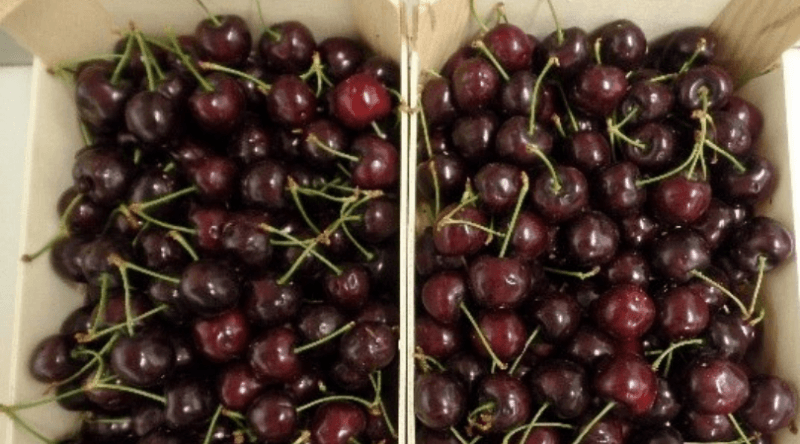NanoPack, an EU-funded project, has demonstrated the ability of its antimicrobial film with low concentration of various natural essential oils to extend shelf life of cherries and bread by more than 40%.

Image: Cherries after 18 days, with commercial film (on the left) and NanoPack film (on the right). Photo: courtesy of Nano Pack.
The core objective of the NanoPack project is the development of packaging to extend the shelf-life and quality of fresh produce, bakery products and proteins.
NanoPack is currently involved in the testing of active packaging materials with a range of products.
The cherries have been packed in bags made of NanoPack film and commercial film were stored at the same holding temperature for 14 days. Later, they were shifted to an ambient temperature for four days.
The results have demonstrated that NanoPack film expanded the shelf life of cherries by two days.
According to NanoPack, only 33% of the cherries packaged in commercial film were saleable compared to the 73% of NanoPack’s, and the two-day increase in shelf life corresponds to an added value of 40% increase in saleability.
The antimicrobial film has doubled the shelf life of some baked goods without addition of any preservatives compared against those packed in conventional plastics packaging.
NanoPack scientific team’s Elisa Valderrama García said: “We are experimenting with a wide range of products – fresh produce, breads and pastries, as well as dairy and meat proteins. This means we must identify the best combination and concentration of essential oils as well as the most appropriate packaging format for each.”
NanoPack said that the goal of the project is to produce a viable nanotechnology-based flexible film for commercialization by the end of this year.
The project has secured funding under the EU Horizon 2020 scheme for the introduction of nano-technologies into flexible packaging.
NanoPack is mainly focused on the development and demonstration of solutions for extending food shelf life through using novel antimicrobial surfaces applied in active food packaging products.
The project intends to develop, scale up and run pilot lines in operational industrial settings to produce and validate antimicrobial polymer films, which are commercially feasible and accepted by retailers and consumers.
